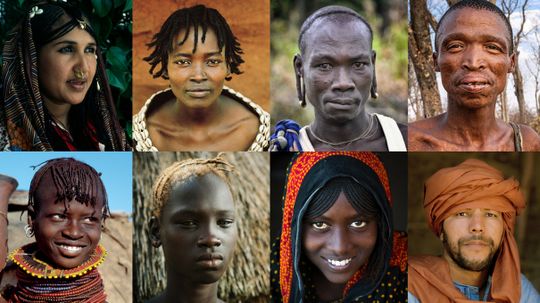In a groundbreaking study, researchers have shed light on the intricate genetic origins that underlie the remarkable diversity in human skin color. This pioneering research not only enhances our understanding of human evolution but also has significant implications for medical and anthropological studies.
Decoding the Complexities of Human Skin Pigmentation
The study delved deep into the complex interplay between genetics and environmental factors to unravel the mysteries surrounding skin pigmentation. By analyzing DNA samples from diverse populations across different continents, scientists identified several key genes responsible for determining variations in skin color.
Contrary to popular belief, it was discovered that multiple genes contribute to an individual’s skin tone rather than a single gene being solely responsible. The interaction between these genes is influenced by various external factors such as exposure to sunlight and geographical location.
This comprehensive analysis revealed fascinating insights into how natural selection has shaped human pigmentation over millennia. It highlighted how populations living closer to the equator tend to possess darker skin tones due to increased melanin production, providing protection against harmful ultraviolet (UV) radiation.
Implications for Medical Research and Anthropology
The findings from this study hold immense potential for medical research, particularly in dermatology and oncology fields. Understanding the genetic basis of different skin colors can aid in developing targeted treatments for conditions like melanoma or other UV-related disorders.
Beyond medicine, this research contributes significantly to anthropological studies by shedding light on historical migration patterns and population dynamics. By examining genetic markers associated with specific regions or ethnic groups, scientists can gain valuable insights into ancient human migrations and interactions throughout history.
This knowledge paves the way for a more nuanced understanding of our shared ancestry while celebrating our rich cultural diversity rooted in unique genetic backgrounds.
Unveiling the Beauty of Human Diversity
The study’s findings emphasize the importance of embracing and appreciating the vast spectrum of human skin colors. By unraveling the genetic foundations behind this diversity, we can challenge societal norms and prejudices associated with skin color, fostering a more inclusive and equitable world.
As we continue to explore the complexities of our genetic makeup, it is crucial to recognize that skin color is just one aspect of our multifaceted identities. Embracing diversity in all its forms enriches our collective experience and promotes a society built on acceptance, understanding, and unity.
